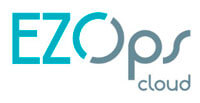Go, commonly known as Golang, has emerged as a powerful programming language for building scalable and reliable cloud systems and facilitating efficient DevOps operations. Its unique features and benefits make it a compelling choice for developers and organizations aiming to streamline their infrastructure and application development processes.
Concurrency and Parallelism
One of Golang’s standout features is its built-in support for concurrency and parallelism. Golang’s lightweight goroutines and channels enable developers to efficiently handle concurrent tasks, making it particularly well-suited for cloud systems that require high levels of concurrency and parallel processing. This capability allows for the efficient utilization of multi-core processors, enhancing the performance and responsiveness of cloud applications.
Efficiency and Performance
Golang is renowned for its exceptional performance and efficiency. Its compilation process produces standalone binaries, eliminating the need for external runtimes and dependencies, which is advantageous for deploying applications in cloud environments. Additionally, Golang’s statically typed nature and optimized compilation process contribute to its high performance, making it an ideal choice for building fast and resource-efficient cloud systems and DevOps tools.
Simplicity and Readability
The language’s simplicity and readability are key factors contributing to its widespread adoption in cloud and DevOps environments. Golang was designed with a focus on simplicity, offering a clean and concise syntax that promotes readability and maintainability. This characteristic is especially valuable in cloud and DevOps operations, where complex systems and processes necessitate code that is easy to understand, modify, and maintain.
Standard Library and Ecosystem
Golang boasts a rich standard library and a thriving ecosystem of third-party packages and tools, catering to the specific requirements of cloud systems and DevOps operations. The standard library provides comprehensive support for networking, concurrent programming, and cryptographic functions, empowering developers to efficiently address common challenges encountered in cloud and DevOps development. Moreover, Golang’s extensive ecosystem offers a plethora of open-source tools and libraries for tasks such as container orchestration, infrastructure automation, and continuous integration/delivery (CI/CD), further augmenting its appeal in cloud and DevOps domains.
Cross-Platform Compatibility
Golang’s cross-platform compatibility is instrumental in its suitability for cloud systems and DevOps operations. The language is designed to seamlessly run on various operating systems and architectures, facilitating the development of platform-agnostic applications and tools. This capability aligns with the diverse and dynamic nature of cloud environments, allowing developers to create solutions that can be deployed across different cloud providers and infrastructure configurations.
Conclusion
In conclusion, Golang stands out as a robust and versatile language ideally suited for the demands of cloud systems and DevOps operations. Its support for concurrency, performance, simplicity, rich standard library, and cross-platform compatibility collectively position it as an excellent choice for developers and organizations looking to build scalable, efficient, and maintainable cloud-based applications and streamline their DevOps workflows. With its unique features and benefits, Golang continues to play a pivotal role in shaping the future of cloud computing and DevOps practices.
